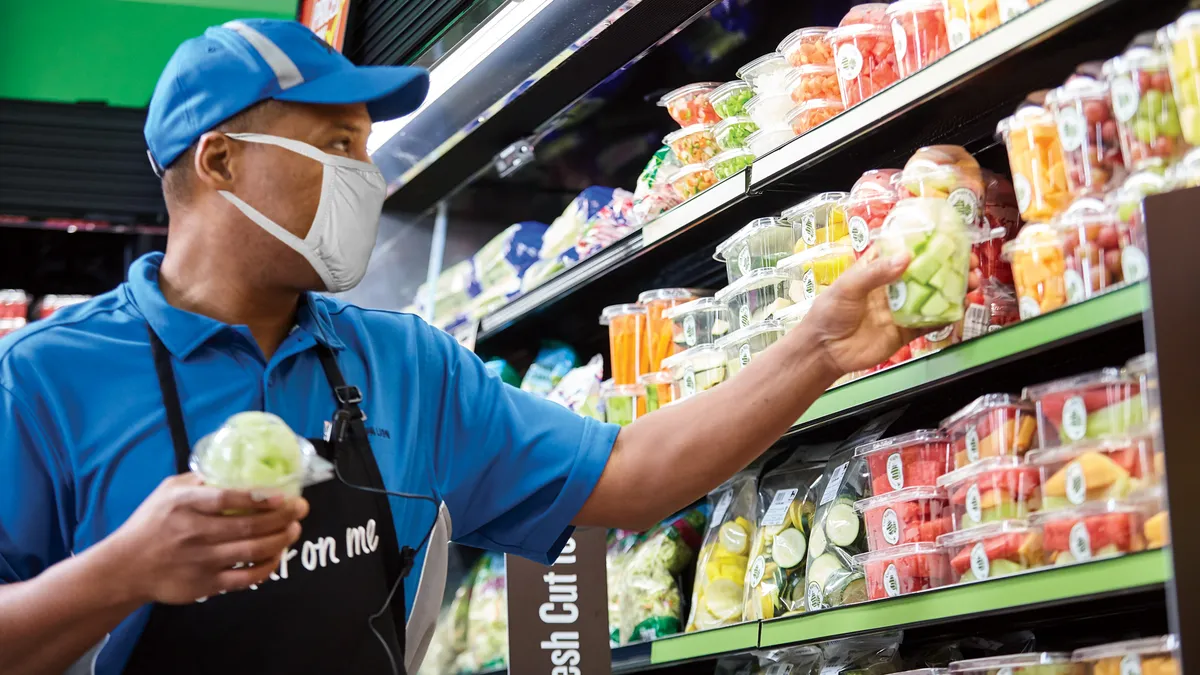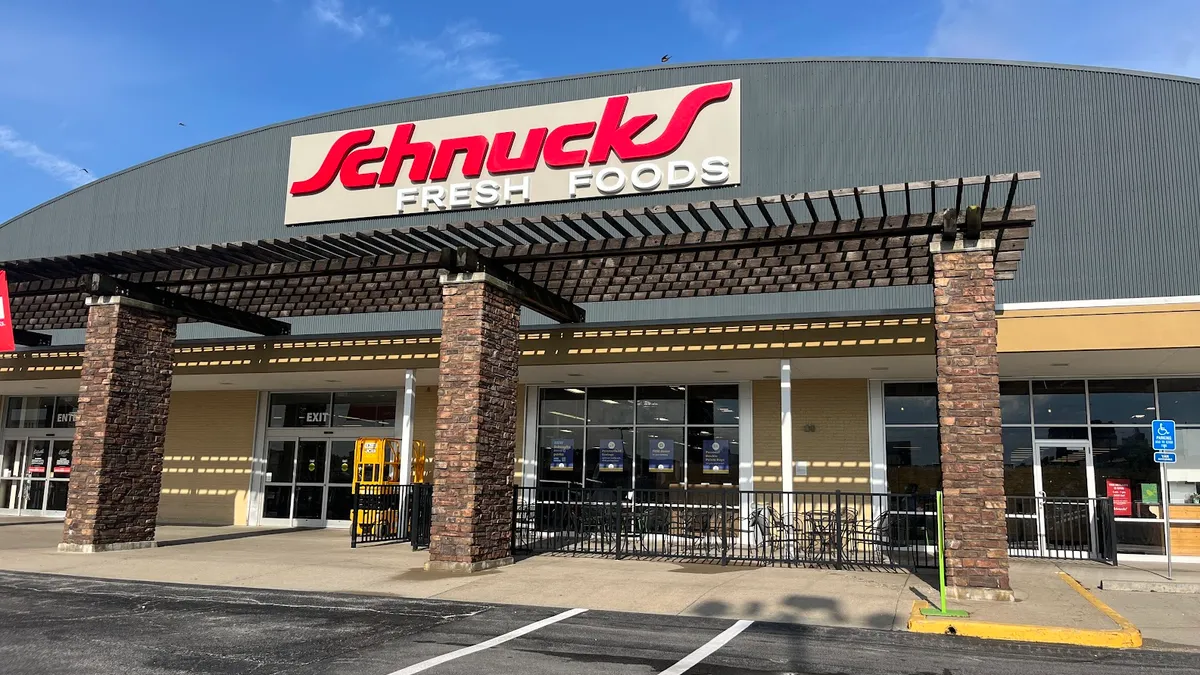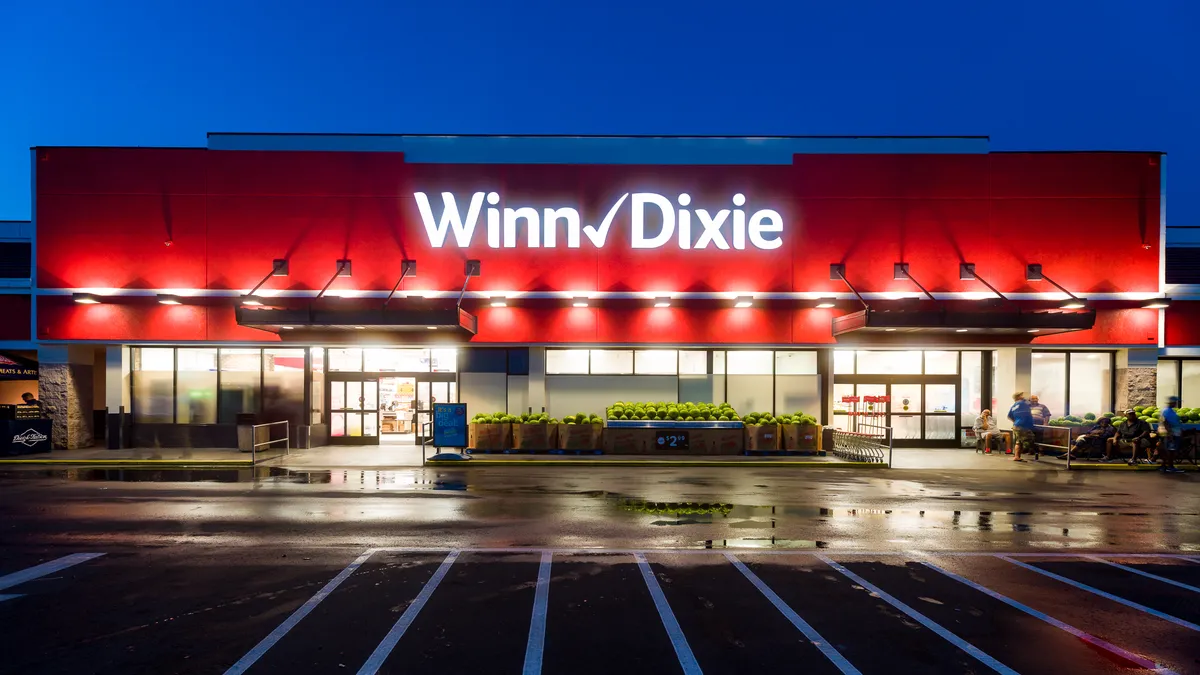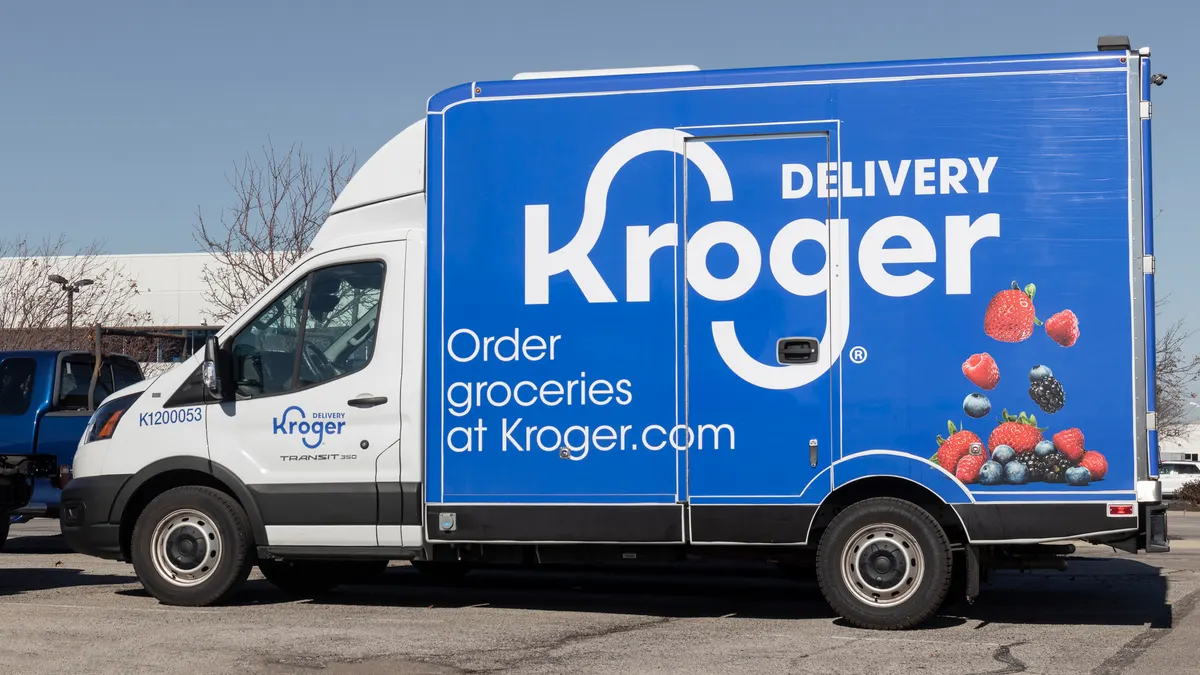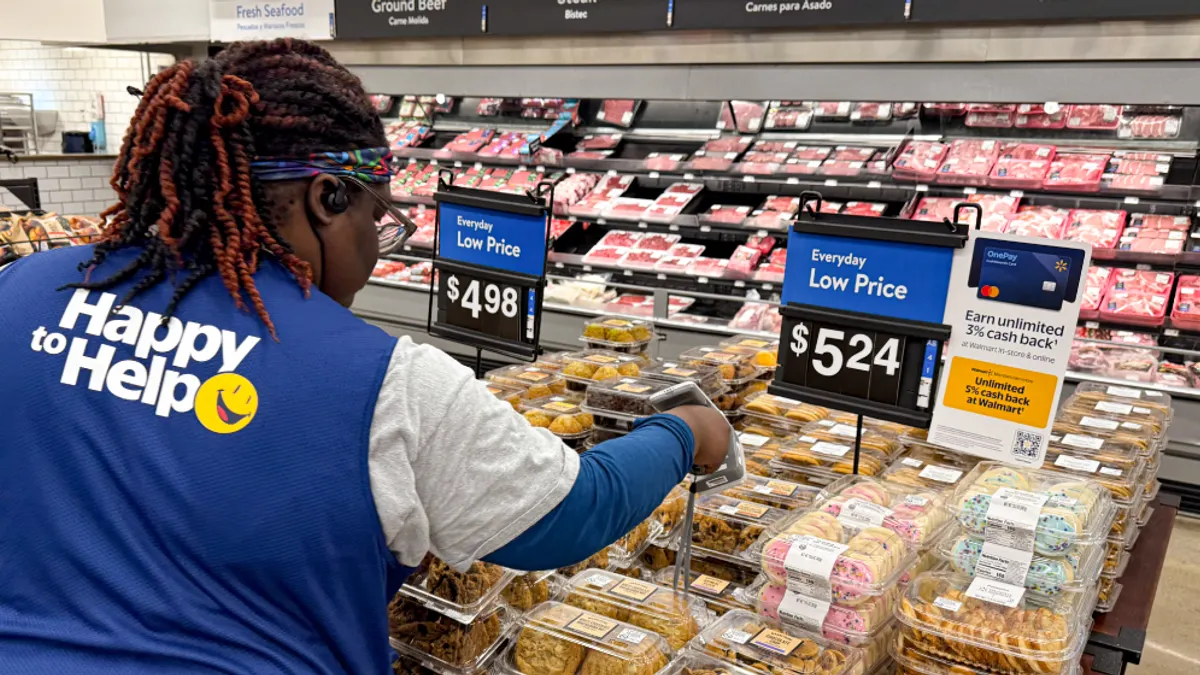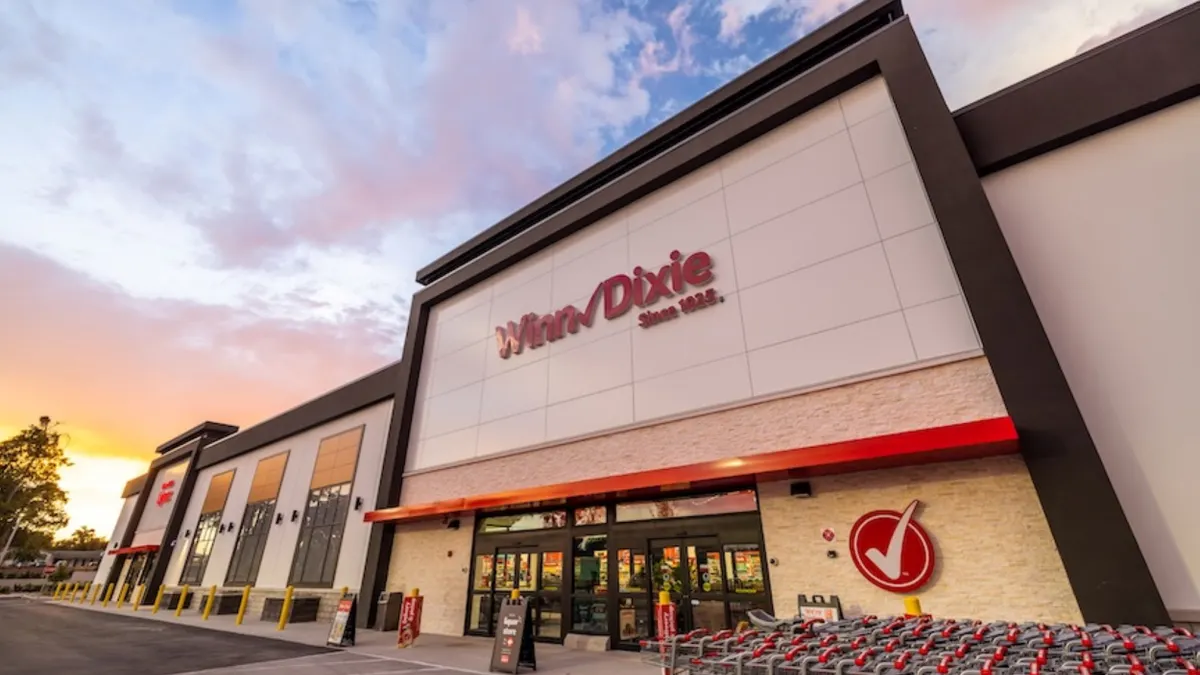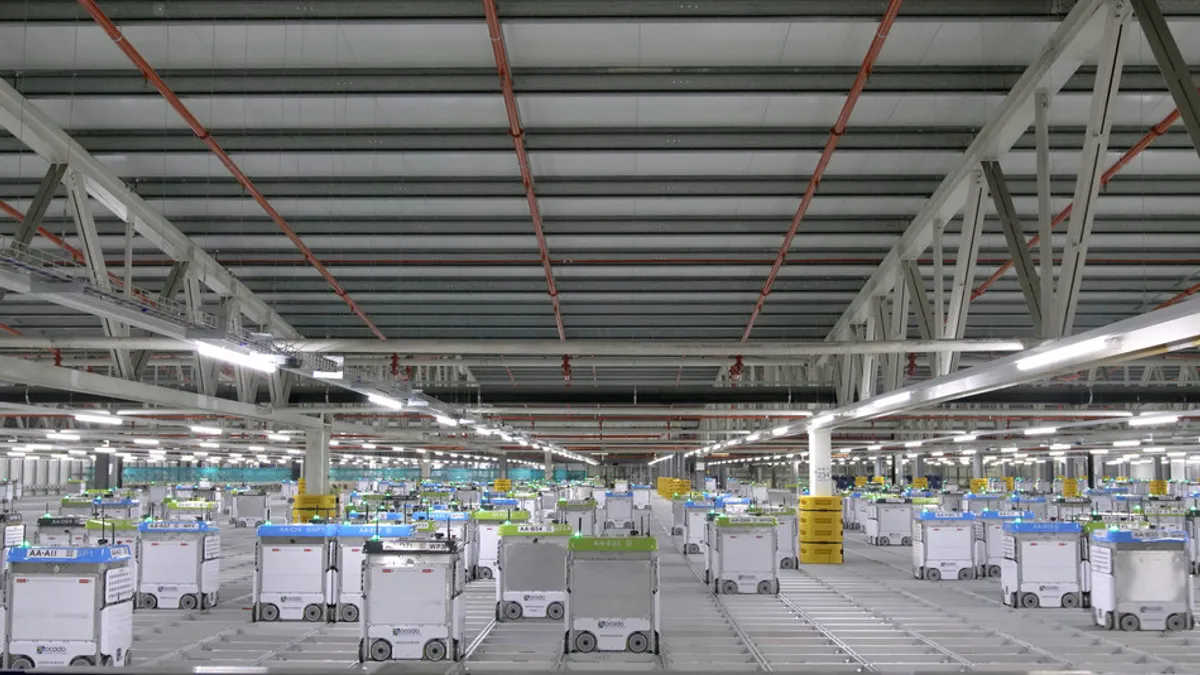The Friday Checkout is a weekly column providing more insight on the news, rounding up the announcements you may have missed and sharing what’s to come.
2024 was fully stocked with twists and turns for the grocery industry, ending with the sudden debacle of the Kroger-Albertsons merger falling apart.
While we don’t have a crystal ball, the team here at Grocery Dive has plenty of questions for the year ahead. Here are three of the biggest ones:
1. Where do Kroger and Albertsons go from here?
Now that the grocery merger of the century has gone up in flames, what will the two grocery giants do? The pressures Kroger said fueled the grocers’ efforts to combine are still present, so how will they gain scale for supplier leverage, lower prices for consumers and protect workers without the deal? Will Kroger and Albertsons pursue separate deals? Will they get entangled in battling each other in court?
Even before the mega-deal fell apart, Kroger President and CEO Rodney McMullen’s comments to investors signaled that the grocer was already charting a path forward without Albertsons. Meanwhile, Albertsons is scheduled to hold an earnings call next week — its first in nearly 30 months — during which executives will have the chance to address investor questions about its plans for the future.
2. What will M&A look like in the grocery industry?
The grocery industry saw a plethora of M&A activity over the last two years as the prospect of a combined Kroger and Albertsons loomed. But with the mega-merger now dead, will grocers — especially regional and smaller ones — be as active in making deals as a way to gain scale and tackle industry pressures? Or will they temper their M&A ambitions to instead focus on profitability and internal investments?
3. What will happen on the labor front?
If we do see strong M&A activity, what impact would that have on workers? Grocery store employees nabbed the national spotlight for nearly five years, first because of their role as frontline workers during the COVID-19 pandemic and later as unions and other advocates voiced concerns that the Kroger-Albertsons merger would harm them. In 2025, will we see stronger action on the union front? How much will retailers focus on wage investments or benefits to retain staff?
Check back on Tuesday for our article featuring industry experts we interviewed weighing in on what they predict will be the top grocery industry trends for 2025.

In case you missed it
Kansas completes grocery tax phaseout
The state fully eliminated its sales tax on groceries on Wednesday, capping a gradual wind-down of the levy implemented in accordance with legislation signed by Gov. Laura Kelly the previous year. The change applies to food, food ingredients and selected prepared foods.
The Kansas Department of Revenue has calculated that the final reduction will save Kansans a projected $156 million in 2025, according to a Thursday statement from the governor’s office. However, shoppers will still need to pay applicable local sales taxes.
Philly Whole Foods Market workers to vote on unionization
Associates at one of the specialty grocery chain’s stores in Philadelphia will vote Jan. 27 to decide whether to join the United Food and Commercial Workers International Union, according to a notice posted on Dec. 5 by the National Labor Relations Board. If the workers elect to ally with the UFCW, the location would become the first unionized Whole Foods location in the U.S., according to UFCW Local 1776, which would represent the employees.
Workers at the store, located at 2101 Pennsylvania Ave., say they need to unionize to obtain better pay and benefits from the Amazon-owned grocery company.
U.S. is behind the curve on helping shoppers size up groceries, professor says
The U.S. lags other industrialized countries in empowering consumers to evaluate the nutritional quality of items on grocery store shelves, Christopher Damman, an associate professor of gastroenterology at the University of Washington School of Medicine, wrote in a Dec. 26 essay for The Conversation.
Countries including France, Australia and the United Kingdom have “nutrient profiling systems” that place quality grades on the front of food packages, but the U.S. does not have a comparable method for ranking food products based on their nutritional profiles, Damman wrote. While the “Nutrition Facts” labels that appear on the back or side of packages in this country provide details about a food’s nutritional profile, that information can be hard to understand, he said
Impulse find
Kroger has a big birthday coming up
The supermarket chain is still smarting from its failed merger, but it does have reasons to celebrate as it looks ahead to the 150th anniversary of its founding in 2033, Mashed noted in a recent story.
Kroger, which was founded in 1883, defined its path as a grocery industry pioneer early on by baking its own bread, adding a butcher department and offering home delivery by horse-drawn carriage, according to Mashed. “While it wasn’t the first to adopt the ‘supermarket’ model, the chain has been behind many innovations that have changed the way we shop for groceries in the U.S.” the article pointed out.

